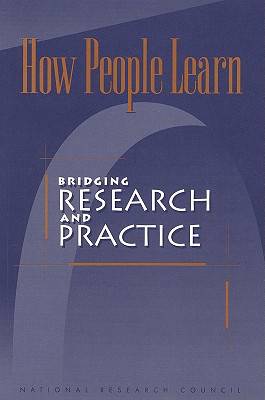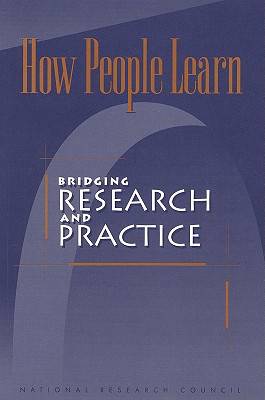
- Afhalen na 1 uur in een winkel met voorraad
- Gratis thuislevering in België vanaf € 30
- Ruim aanbod met 7 miljoen producten
- Afhalen na 1 uur in een winkel met voorraad
- Gratis thuislevering in België vanaf € 30
- Ruim aanbod met 7 miljoen producten
How People Learn
Bridging Research and Practice
National Research Council, Division of Behavioral and Social Sciences and Education, Board on Behavioral Cognitive and Sensory Sciences, Committee on Learning Research and Educational PracticeOmschrijving
How People Learn: Bridging Research and Practice provides a broad overview of research on learners and learning and on teachers and teaching. It expands on the 1999 National Research Council publication How People Learn: Brain, Mind, Experience, and School, Expanded Edition that analyzed the science of learning in infants, educators, experts, and more. In How People Learn: Bridging Research and Practice, the Committee on Learning Research and Educational Practice asks how the insights from research can be incorporated into classroom practice and suggests a research and development agenda that would inform and stimulate the required change.
The committee identifies teachers, or classroom practitioners, as the key to change, while acknowledging that change at the classroom level is significantly impacted by overarching public policies. How People Learn: Bridging Research and Practice highlights three key findings about how students gain and retain knowledge and discusses the implications of these findings for teaching and teacher preparation. The highlighted principles of learning are applicable to teacher education and professional development programs as well as to K-12 education. The research-based messages found in this book are clear and directly relevant to classroom practice. It is a useful guide for teachers, administrators, researchers, curriculum specialists, and educational policy makers.
Specificaties
Betrokkenen
- Auteur(s):
- Uitgeverij:
Inhoud
- Aantal bladzijden:
- 88
- Taal:
- Engels
Eigenschappen
- Productcode (EAN):
- 9780309065368
- Verschijningsdatum:
- 1/07/1999
- Uitvoering:
- Paperback
- Formaat:
- Trade paperback (VS)
- Afmetingen:
- 152 mm x 229 mm
- Gewicht:
- 167 g

Alleen bij Standaard Boekhandel
Beoordelingen
We publiceren alleen reviews die voldoen aan de voorwaarden voor reviews. Bekijk onze voorwaarden voor reviews.











